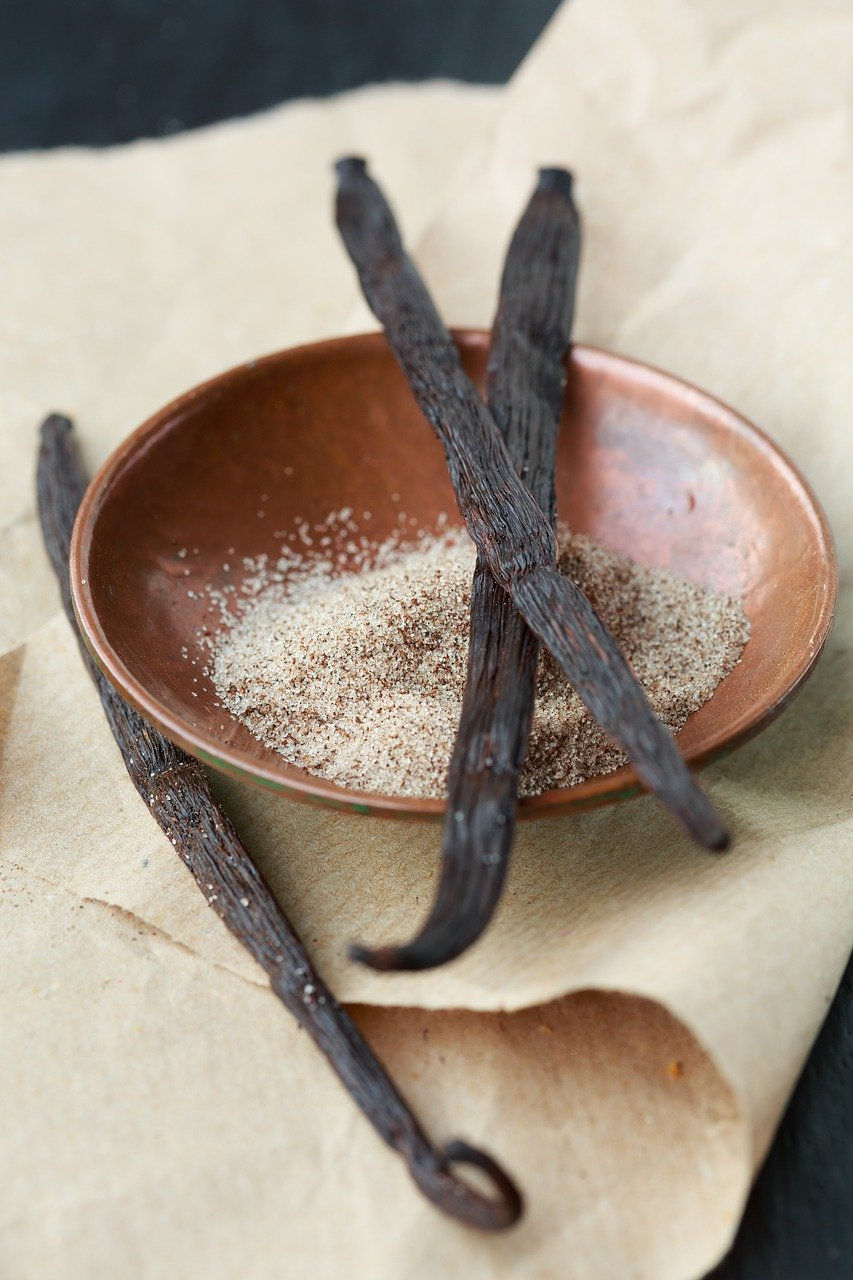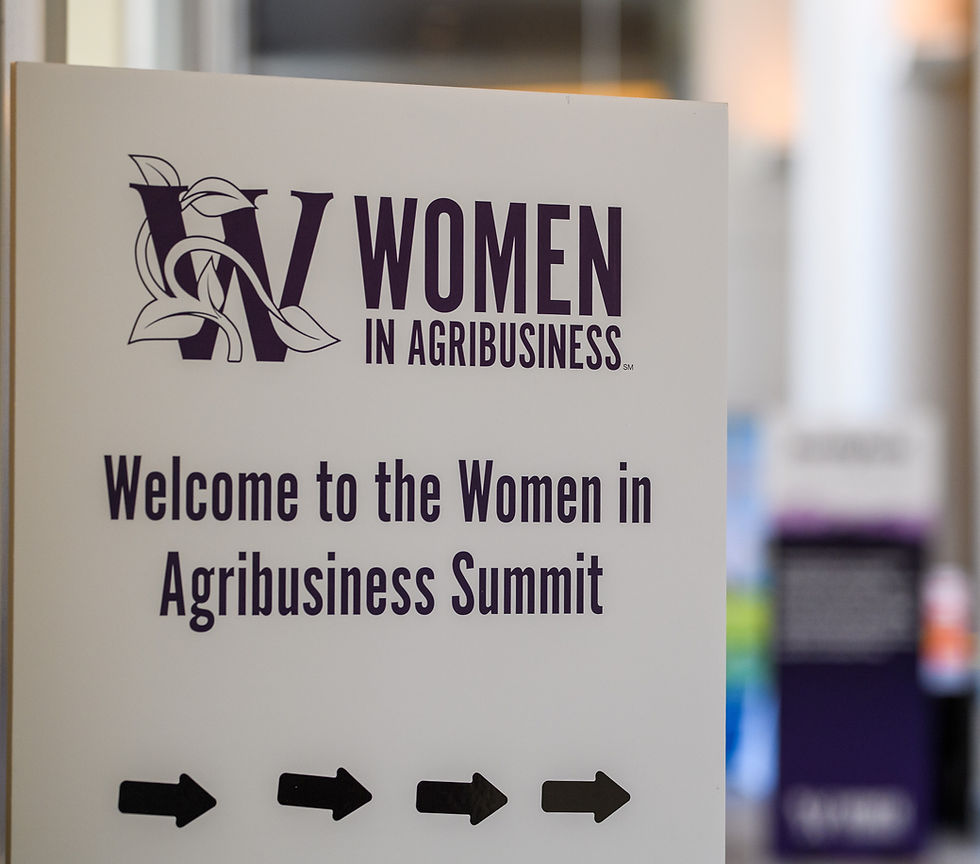15 Minutes With… Ruth Moloney, Co-founder of Corridgeree Belize Ltd.
- Jul 6, 2021
- 5 min read
By Michelle Pelletier Marshall, Global AgInvesting Media (July 6)
NOTE: This story is reprinted from our sister publication, GAI News.
Australian Ruth Moloney has traveled her way across the supply chain, from being a buyer and trader and now, an independent cocoa and vanilla producer in Belize – a position she has held since 2017 when she founded Corridgeree Belize Ltd along with her business partner Tino Cota.

While focused on improving the productivity and livelihoods in developing countries (she had been, among other positions, managing a Global GAP certified 3,000-acre mixed citrus, coconut, and cacao operation in the Stann Creek district of Belize, including the startup of a fresh coconut water and lime processing plant, and was previously head of development and sustainability for ECOM Trading in the Eastern Caribbean), she also knows the utmost importance of the need for a commercial, results-oriented mission when seeking investors in tropical agriculture.
Moloney speaks of being part of the “missing middle” in sustainable agriculture, especially being located in a developing country. She can point to a spreadsheet that has nearly 180 “no’s” from investors, whom she contacted to help grow Corridgeree Belize Ltd. “Investors want to put in $10 million and get back one million in product sales as a return, or they want to impact 30,000 small farmers,” she said. “We are not in either category, and thus finding investors who are willing to help those in the ‘middle’ of the investment opportunity is a very small playing field.”
But Moloney and her small staff of around 20 believe in their product, and kept at it even during the pandemic, which halted Belize’s tourist business almost immediately, along with their sales of hydroponic produce. With the help of the Caribbean Export Development Agency, the EU, and Beltraide, the company got its tissue culture laboratory up and running, and is now producing vanilla seedlings. With flexibility, patience, grit, and of course, funding, they are on a new path.
GAI News spoke with Moloney to learn more about the journey and the goal at the end of the road.
1). Tell us more about the missing middle and Corridgeree’s place there.
SMEs like ours are the engine of sustainable growth. They are generally the largest employer in most areas, and are of a scale that can continue to grow, whereas most small farmers are locked into very narrow opportunities for growth. In addition, for a lot of small farmers in developing countries, farming is the job of last resort – many of them would prefer the predictability of a paycheck every two weeks rather than the inherent risks of farming. On the other side, impact investors want to see a million dollars in sales before they will even send a due diligence team. So we are marching across that “Valley of Death” with funding from family and friends. Luckily we have a great network in both cocoa and vanilla that we can call upon, and we definitely help others when they need it.
2). You have worked all along the supply chain. Why form your own business? And why Belize?
Cocoa and vanilla are probably the last two industrial crops that are still grown by small farmers. In most cases there is absolutely no technology used beyond a machete (I’m not kidding). So we saw the opportunity to introduce practices like drip irrigation, grafted or known planting material (in the case of vanilla), high-density planting, and fertigation. That way less land is needed to cultivate, and you can protect valuable rainforest. We have set aside over 50 percent of our farm for preservation and research into the wild vanilla varieties that grow there naturally. We also see that a well-run farm can be an enjoyable and safe place to work, and we have a very steady crew of employees now.

A lot of the large chocolate companies also want to work with people on the ground that will look out for their interests – not growing in protected areas, not using the worst forms of child labor, and following local laws. As former buyers for Nestlé and Barry Callebaut, we understand that and make sure it does not happen in our supply chain.
As for Belize, it feels a lot like where I grew up in North Queensland, so I felt very much at home when I got here. It has incredible cocoa and vanilla genetics, which are still very poorly understood, great people, and I feel very safe here and can live on the beach!
3). You’ve been cognizant about employing regenerative agriculture practices. How has that worked out “on the ground” in the climate and culture in Belize?
A lot of the main ag crops in Belize have been beset by disease – bananas, citrus, shrimp – and drought in the sugar industry. So the country is looking for alternatives, and both cocoa and vanilla have been growing here for millenia. It makes sense to be working with these crops and employing agroforestal methods to grow them to diversify income. We are trying to reduce our use of fertilizers by using fertigation (we already use hydroponics to grow produce), and introducing beneficial microorganisms to improve uptake of nutrients especially phosphorus. We also use a lot of nitrogen fixing crops such as arachis and madre de cacao, but honestly if you are going to take a high volume of cocoa (or any crop) from an area and not fertilize, it’s just a matter of time before the trees and the soils are depleted. So to us, it is a balance, and it’s based on science.
We are also seeing very harsh dry seasons now in Belize – it’s a lot like Australia in that sense. Irrigating using drip works very well. And we hope our farm can demonstrate more efficient ways of producing both cocoa and vanilla, and other farmers adopt these practices. It’s much easier to imagine doing it if you know there is a farm down the road implementing best practices, and you can go visit it and see for yourself.
4). While it may not be the million-dollar return, what is the opportunity for returns with an investment in Corridgeree, and where do you see the business in five years?
Ah that old question! If I look back, I never got the answer to this question right over the last 35 years so I’m not sure I am any better at answering it today. I just want to be challenged, build something, and be a decent person. All the rest is just details. But specifically, I do think we will reach our growth targets and be a significant exporter pretty soon. Both Tino and I have the hustle to get it done.
ABOUT RUTH MOLONEY
Australian by birth, Ruth Moloney was the business manager for TexBel Farms until 2016 with responsibility for developing cacao and coconut plantations, as well as managing a 3,000-acre coconut and citrus operation in Belize, including the design and build of a processing plant for coconut water.

Formerly Moloney was development and sustainability manager for the Americas for Ecom Agrotrade Ltd, and previous to this, she held the same role for Armajaro Trading North America. At both companies, Moloney managed programs training small farmers in sustainable agriculture while leading and developing economically advantageous and sustainable agricultural projects, including playing a key role in setting up the USAID funded Peru Cacao Alliance. She also set up and was a part-owner in the St. Vincent Cocoa Company.
Moloney has also served as strategic cacao buyer in Los Angeles for Nestlé USA, focusing on procurement and hedging for their North American operations. Earlier in her career with Nestlé she worked for three years in a senior role in sugar procurement for operations in Asia, Oceania, and Africa. She joined Nestlé after 13 years with CSR Limited’s sugar operations, running various commodity risk management portfolios including futures, options, swaps, and foreign exchange.
Moloney has previously been a board member of the Cacao Merchants’ Association of America, and currently sits on the board of Swisscontact North America. She graduated with a Bachelor of Agricultural Science from the University of Queensland and has a Masters of Commerce degree from the University of New South Wales.








